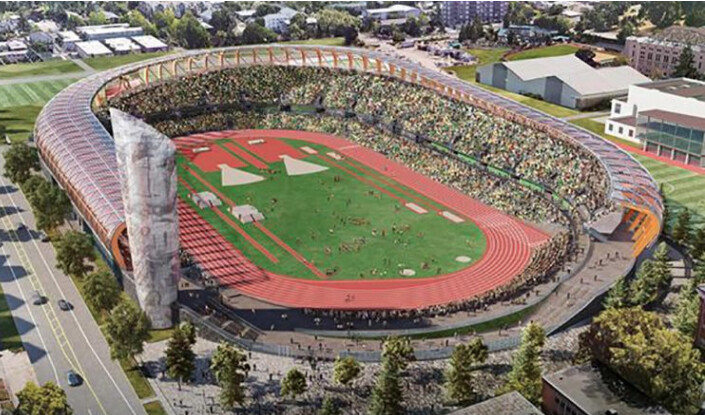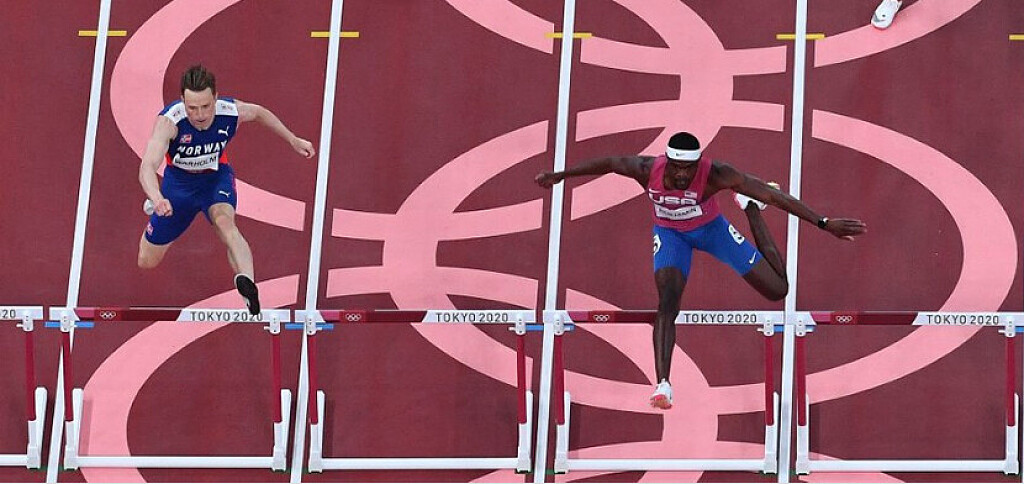Running News Daily
Running News Daily is edited by Bob Anderson. Send your news items to bob@mybestruns.com Advertising opportunities available. Train the Kenyan Way at KATA Kenya and Portugal owned and operated by Bob Anderson. Be sure to catch our movie A Long Run the movie KATA Running Camps and KATA Potato Farms - 31 now open in Kenya! https://kata.ke/
Index to Daily Posts · Sign Up For Updates · Run The World Feed
Track And Field Maintained Its Position As The #1 Olympic Sport At The Tokyo Games
Figures from the Tokyo Games show track and field is more popular than anything else but World Athletics president Seb Coe warns we should not rest on our laurels
Recent years have seen cycling, swimming and gymnastics threatening the traditional supremacy of athletics as the biggest and most popular Olympic sport. Triathlon, beach volleyball, surfing and skateboarding are all making their mark too.

Track and field athletics, though, remains the No.1 sport at the greatest show on earth. World Athletics president Seb Coe says it is not based on anecdotal evidence either but pure stats.
“We had the highest number of broadcast viewing hours in Tokyo by some distance ahead of any other Olympic sports with some 2.2 million hours,” he said on Friday during an end-of-year interview.
“Athletics had the largest number of media articles written about it – some 10,000 – compared to other sports,” he added. “We had the highest number of shared articles across social media, which was roughly about 700 million, and that led to over 62 million conversations on social media around athletics, plus the highest number of video views across the IOC and the Tokyo Olympic Games websites and app of more than half a million.”
These Games-time findings are related to the study commissioned by the IOC to Publicis Sport & Entertainment (PSE), an independent agency that collected and consolidated the sport and event data from a variety of third-party sources across a number of pre-established territories from all continents.
Coe admits he enjoys rubbing this in when he is in IOC circles or mingling with people from other sporting governing bodies. But he refuses to get complacent.
When asked if he feels athletics has been in danger of losing its pole position in recent years, or whether it might stumble in future, he replies: “Look, it’s actually not a bad trait in life to be slightly paranoid about everything. While I’m president of World Athletics it’s my intention to make sure that our sport becomes stronger, more globally representative and that every time we leave a championship we’ve got data to reflect on.
“I say this with pride that we are the No.1 Olympic sport, but that’s only one metric because there are other sports such as basketball, which is an Olympic sport but if you see it in its professional manifestation (it is huge).
“So we have to recognise that there are other sports out there and there are other sports that we may not even be thinking about at the moment. I read a very interesting piece recently which was looking slightly into the future about the fact there are AI algorithms that are actually at this moment trying to figure out what the next sport might look like.”
Coe says World Athletics plan to work on improving the sport’s popularity in 2022 and have a brilliant opportunity to leave “an indelible footprint” at the World Championships in Eugene, Oregon.
The global governing body plan to do this via social media but without neglecting the role of television. “We can’t underestimate the power of TV,” says Coe.
There are also, he reveals, discussions to produce a Netflix-type documentary series about athletics in a similar style to the Drive to Survive programmes about Formula 1 and The Last Dance about the Chicago Bulls basketball team during the Michael Jordan era.
“EBU (European Broadcasting Union) is talking about some quite creative stuff,” he says, “maybe even a documentary series around athletics – a similar kind of Netflix Drive to Survive documentary which would allow (cameras) to go behind the scenes and allow us to access new audiences which might not naturally gravitate to our sport in the same way that Formula 1 has been dramatically impacted by that. Similarly, European interest in basketball was sparked by The Last Dance. These are important vehicles and I think we should be utilising those.”
“We cannot rest on our laurels,” he continues. “And while it’s nice to be able to say we are the No.1 Olympic sport, it can’t just become an academic conversation because the biggest challenge we’ve got is probably not from sport. It’s from other areas of activity where young people have a shorter focus.
“What they consume in terms of content is much shorter (these days). If you speak to anybody in broadcast, they’ll tell you that the average length that most people would prefer to watch television programme is about 7-8 minutes. So it means that we’ve got to be very clear that our benchmark is not just sport.
“If our activity is sport, our business is entertainment – and we mustn’t forget that. And that’s not to jettison what we celebrate as our sport. But we have to just recognise we live in a very fast changing world and sport is only one element of that in the lives of young people. And for some young people, it’s less important than it’s ever been. And we need to make sure that we just move with those times.”
by Athletics Weekly
Login to leave a comment




